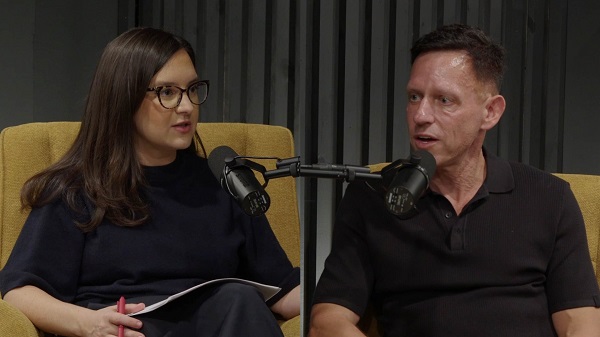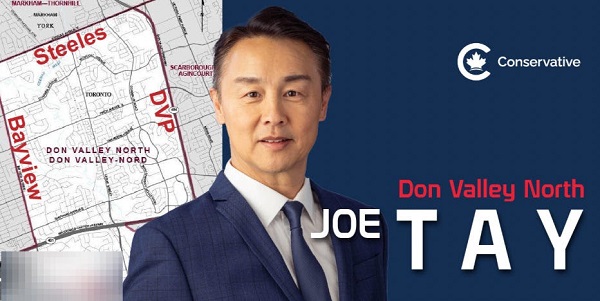International
Independent Media “The Free Press” hits 1 Million subscibers

Free Press founder Bari Weiss interviews Peter Thiel
| By Bari Weiss |
The rise of The Free Press happened simply and honestly: story by story.
Christmas and Hanukkah celebrate otherworldly miracles. But this Chrismukkah—the holidays fell on the same day this year—we at The Free Press added a miracle of an entirely human kind. We reached one million subscribers.
Grateful—and hopeful—doesn’t begin to cover it.
I have been beaming since Wednesday morning, when I refreshed my screen and got the good news in Nellie’s childhood home. (We captured the moment; this was before I cried.) Mostly I’m pinching myself, thinking back to how this all began, and wondering how we got here.
The easy answer would be: Americans’ faith in the legacy press has collapsed, with curious and independent-minded readers unsubscribing from The New York Times, pausing their donations to NPR, and searching for trustworthy alternatives.
And that’s certainly part of what happened. It was definitely the beginning.
But we quickly discovered that you can’t build something new—or certainly not something lasting—based only on rejecting the old. You have to build something people value. Something people need.
At The Free Press, that something is the truth—the only goal of real journalism. That’s what we’ve run hard and fast toward. From day one, we’ve had a single guiding principle: Pursue the truth and tell it plainly. No shortcuts. No exceptions.
From day one, we’ve been reporting stories the legacy media was scared to touch or had overlooked as a result of its incuriousness, politesse, or entrenched interests. We’ve aimed to pair the political freedom of the new world with the professed standards of the old. And because we’ve been a subscription business from the start, we’ve been liberated from the need to please advertisers or get clicks. That’s allowed us to do ambitious journalism, driven by a desire to bring our readers great work that informs them about the world as it is.
We’ve done all this very lean. We don’t have hordes of consultants, mammoth business teams, or special strategies for ranking on social media or Google. Until a few weeks ago, we didn’t even have a metered paywall, let alone a product manager.
And when I say we—I don’t just mean our editorial team, which is the hardest working in the industry. I mean all of us. All one million, especially those who have been here from our earliest days.
Back then, honestly, a paid subscription didn’t get you anything so different from a free one. Now we’ve expanded to offer a whole fleet of content and events and podcasts. Soon, we’ll have even more. But our early subscribers didn’t sign up when we had any of that. They believed deeply in the mission, and that belief allowed us to grow.
In other words: there were no fancy tricks. The rise of The Free Press happened simply: story by story. Podcast by podcast. Debate by debate. Video by video. Interview by interview. And subscription by subscription.
As I’ve told our newsroom on more than one occasion: There is no secret business—no gaming or cooking app, for now at least. The business is the stories we tell. If a story is excellent, if it tells our readers something new, something revelatory, if it explains something in a new way, if it deepens trust, we will grow. If it doesn’t do these things, we won’t. Our readers are discerning: They love and reward quality.
This is all a way of saying: We reached this milestone because of you.
The Free Press began as a question I asked myself after resigning from The New York Times, scratching my head at what I saw there. Is there still a market for real journalism? For fearless, fair, independent journalism that treats readers like adults? Journalism that presents the facts—even the uncomfortable ones—and allows people to draw their own conclusions?
The answer, it turns out, is a resounding yes.
That “yes” from one million of you—and counting—has given me hope not just for journalism but for the future.
So here’s to you, the first million members of the Free Press community. Here’s to the next million. And most important of all: Here’s to the next story.
In honor of this milestone, we’re offering a 25% discount to become a paying member of our community. If you’re a free subscriber, there’s never been a better time to upgrade. We’re keeping this sale on annual subscriptions going until midnight ET on December 31, 2024, because we want many, many more of you to join us, officially, in 2025.
If the price—less than $80 a year—is prohibitive, please write to us: [email protected] and put “subscription help” in the subject line.
Technically my assignment for today was to choose my favorite stories of 2024. All week long we’ve been recommending the best of The Free Press. Today was my day. Honestly, I found it an impossible task. But if you’re still wondering what makes The Free Press tick, or if it’s worth supporting our work by becoming a paid subscriber, allow me to recommend . . .
1. Uri Berliner would never describe himself as brave, but I will. His bombshell essay, “I’ve Been at NPR for 25 Years. Here’s How We Lost America’s Trust.,” captured how the public radio network lost its way—and shaped conversation for months. If you want to understand why The Free Press is an urgent project, read this.
2. One of the best things to happen to The Free Press this year was my friend Niall Ferguson joining us as a columnist. Start with his inaugural and provocative essay, “We’re All Soviets Now.”
3. Abigail Shrier is one of the most important reporters working today. We were thrilled that she officially joined as a contributing editor this year. Her recent investigation—“The Kindergarten Intifada”—exposes a widespread, pernicious campaign in American public schools to indoctrinate children against Israel.
4. Free Press columnist Coleman Hughes is a generational talent: cool-headed, hyper-rational even as he touches the hottest subjects in our politics and culture. His review essay of Ta-Nehisi Coates’s new book, The Message, is definitive: “The Fantasy World of Ta-Nehisi Coates.”
5. In “They’re Black Democrats. And They’re Suing Chicago Over Migrants,” our reporter Olivia Reingold reminded Americans that you can never, ever make assumptions about what any cohort of voters thinks or believes.
6. And in “I’m 28. And I’m Scheduled to Die in May,” Rupa Subramanya illustrated, in harrowing detail, why a mentally ill person would end her own life in a country where death is seen as a cure.
7. Douglas Murray’s Sunday column, “Things Worth Remembering,” is a weekly jewel. I particularly loved this one, about what makes a great conversationalist: “Conversation Is an Art.”
8. Maddy Kearns’s story on British citizens getting arrested for silently praying was one of the most troubling dispatches I’ve read on the perilous state of free expression in the West: “She Was Arrested for Praying in Her Head.”
9. Not only does she deliver TGIF every week, but Nellie Bowles somehow managed to write a book this year. This excerpt—“The Day I Stopped Canceling People”—is a deeply personal account of going along with the crowd before realizing other things, like love, are more important than fitting in.
10. The Free Press decamped to Israel earlier this year to report from the ground. But our man in Jerusalem, since the start of the war, had been Matti Friedman. Don’t miss his piece “Why I Got a Gun,” a sobering tale of how terror transformed a family.
Beyond the Best of The Free Press, here’s what summed up my 2024. . .
Best thing I read this year: The World of Yesterday by Stefan Zweig.
Best thing I watched: Ratatouille! This is the first—and only—movie our daughter has seen. We watch it in 10-minute increments, so I don’t yet know how it ends. Highly recommend the movie—and this methodology.
Best thing I heard: Beyonce’s Cowboy Carter. And I don’t know if this quite qualifies, but I’m also going with the Roast of Tom Brady. Cultural glasnost, brought to you by Netflix. The beginning of the great un-freezing.
Best thing I bought: These $45 jeans from Amazon. Are they flattering? Absolutely not. But you will not find more comfortable pants.
Best thing I ate: This Alison Roman recipe, which I make in a tagine, never fails. Also: Courage Bagels in LA are worth the wait.
Biggest regret of the year: Not pausing to celebrate wins. And every bedtime I missed because of work. Resolutions, both.
Best thing that happened: The birth of our gorgeous (enormous) son in July.
New Year’s resolution: Become a Pilates mom.
What I am most looking forward to in 2025: Building The Free Press—and spending time with the talented, tireless people I get to build it alongside.
Banks
TD Bank Account Closures Expose Chinese Hybrid Warfare Threat

From the Frontier Centre for Public Policy
Scott McGregor warns that Chinese hybrid warfare is no longer hypothetical—it’s unfolding in Canada now. TD Bank’s closure of CCP-linked accounts highlights the rising infiltration of financial interests. From cyberattacks to guanxi-driven influence, Canada’s institutions face a systemic threat. As banks sound the alarm, Ottawa dithers. McGregor calls for urgent, whole-of-society action before foreign interference further erodes our sovereignty.
Chinese hybrid warfare isn’t coming. It’s here. And Canada’s response has been dangerously complacent
The recent revelation by The Globe and Mail that TD Bank has closed accounts linked to pro-China groups—including those associated with former Liberal MP Han Dong—should not be dismissed as routine risk management. Rather, it is a visible sign of a much deeper and more insidious campaign: a hybrid war being waged by the Chinese Communist Party (CCP) across Canada’s political, economic and digital spheres.
TD Bank’s move—reportedly driven by “reputational risk” and concerns over foreign interference—marks a rare, public signal from the private sector. Politically exposed persons (PEPs), a term used in banking and intelligence circles to denote individuals vulnerable to corruption or manipulation, were reportedly among those flagged. When a leading Canadian bank takes action while the government remains hesitant, it suggests the threat is no longer theoretical. It is here.
Hybrid warfare refers to the use of non-military tools—such as cyberattacks, financial manipulation, political influence and disinformation—to erode a nation’s sovereignty and resilience from within. In The Mosaic Effect: How the Chinese Communist Party Started a Hybrid War in America’s Backyard, co-authored with Ina Mitchell, we detailed how the CCP has developed a complex and opaque architecture of influence within Canadian institutions. What we’re seeing now is the slow unravelling of that system, one bank record at a time.
Financial manipulation is a key component of this strategy. CCP-linked actors often use opaque payment systems—such as WeChat Pay, UnionPay or cryptocurrency—to move money outside traditional compliance structures. These platforms facilitate the unchecked flow of funds into Canadian sectors like real estate, academia and infrastructure, many of which are tied to national security and economic competitiveness.
Layered into this is China’s corporate-social credit system. While framed as a financial scoring tool, it also functions as a mechanism of political control, compelling Chinese firms and individuals—even abroad—to align with party objectives. In this context, there is no such thing as a genuinely independent Chinese company.
Complementing these structural tools is guanxi—a Chinese system of interpersonal networks and mutual obligations. Though rooted in trust, guanxi can be repurposed to quietly influence decision-makers, bypass oversight and secure insider deals. In the wrong hands, it becomes an informal channel of foreign control.
Meanwhile, Canada continues to face escalating cyberattacks linked to the Chinese state. These operations have targeted government agencies and private firms, stealing sensitive data, compromising infrastructure and undermining public confidence. These are not isolated intrusions—they are part of a broader effort to weaken Canada’s digital, economic and democratic institutions.
The TD Bank decision should be seen as a bellwether. Financial institutions are increasingly on the front lines of this undeclared conflict. Their actions raise an urgent question: if private-sector actors recognize the risk, why hasn’t the federal government acted more decisively?
The issue of Chinese interference has made headlines in recent years, from allegations of election meddling to intimidation of diaspora communities. TD’s decision adds a new financial layer to this growing concern.
Canada cannot afford to respond with fragmented, reactive policies. What’s needed is a whole-of-society response: new legislation to address foreign interference, strengthened compliance frameworks in finance and technology, and a clear-eyed recognition that hybrid warfare is already being waged on Canadian soil.
The CCP’s strategy is long-term, multidimensional and calculated. It blends political leverage, economic subversion, transnational organized crime and cyber operations. Canada must respond with equal sophistication, coordination and resolve.
The mosaic of influence isn’t forming. It’s already here. Recognizing the full picture is no longer optional. Canadians must demand transparency, accountability and action before more of our institutions fall under foreign control.
Scott McGregor is a defence and intelligence veteran, co-author of The Mosaic Effect: How the Chinese Communist Party Started a Hybrid War in America’s Backyard, and the managing partner of Close Hold Intelligence Consulting Ltd. He is a senior security adviser to the Council on Countering Hybrid Warfare and a former intelligence adviser to the RCMP and the B.C. Attorney General. He writes for the Frontier Centre for Public Policy.
2025 Federal Election
In Defeat, Joe Tay’s Campaign Becomes a Flashpoint for Suspected Voter Intimidation in Canada

 Sam Cooper
Sam Cooper
Canadian police initiated review of campaign complaint.
In one of the most closely scrutinized races of Canada’s 2025 federal election, Joseph Tay—the Conservative candidate identified by federal authorities as the target of aggressive Chinese election interference operations—was defeated Monday night in Don Valley North by Liberal Maggie Chi, following a campaign marred by threats, suspected intimidation, and digital suppression efforts.
The Bureau has learned that Canadian police last week reviewed complaints alleging that members of Tay’s campaign team were shadowed in an intimidating manner while canvassing in the final days of the race. The status of the incident review remains unclear.
With over 20,000 votes—a 43 percent share compared to 53 percent for Liberal Maggie Chi—Tay nearly doubled the Conservative Party’s 2021 vote total of 12,098 in this riding.
Last Monday, federal intelligence officials disclosed that Tay was the subject of a highly coordinated transnational repression operation tied to the People’s Republic of China. The campaign aimed to discredit his candidacy and suppress Chinese Canadian voters’ access to his messaging through cyber and information operations.
That same day, federal police advised Tay to suspend door-to-door canvassing, according to two sources with direct knowledge, citing safety concerns. Several days later, Tay’s campaign reported to police that a man had been trailing a door-knocking team in a threatening manner in a Don Valley North neighbourhood.
Following The Bureau’s reporting, the New York Times wrote on Sunday: “Fearing for his safety, Mr. Tay… has waged perhaps the quietest campaign of any candidate competing in the election. The attacks on Mr. Tay have sought to influence the outcome of the race in Don Valley North, a district with a large Chinese diaspora in Toronto, in what is the most vote-rich region in Canada.”
In a twist, in neighbouring Markham–Unionville, Peter Yuen—the Liberal candidate who replaced former MP Paul Chiang, who had made controversial remarks about Tay being turned over to Chinese officials—was defeated by Conservative candidate Michael Ma. According to Elections Canada’s results, Ma secured the riding by about 2,000 votes.
Tay and his campaign team had conducted extensive groundwork in Markham–Unionville earlier this year, where he publicly announced his intention to seek the Conservative nomination in January. However, the party ultimately assigned him on March 24 to Don Valley North—a riding that, according to the 2024 report of the National Security and Intelligence Committee of Parliamentarians (NSICOP), was the site of serious foreign interference by the People’s Republic of China during the 2019 election.
At 2 a.m., Tay posted a message to X thanking supporters: “By God’s grace, though we did not win tonight, we have already won something far greater—the courage to stand, to speak, and to dream together.”
Signaling he may run again, Tay added: “Our journey does not end here. I remain committed to upholding Canadian values—freedom, respect, and community—and will continue to serve and help build a wholesome, principled community in every way I can.”
Last Monday, SITE—Canada’s election-threat monitoring task force—confirmed that Tay was the target of a coordinated online disinformation campaign, warning in briefing materials that “this was not about a single post” but a “deliberate, persistent campaign” designed to distort visibility and suppress legitimate discourse among Chinese-speaking voters.
The tactics bore striking resemblance to interference allegations uncovered by The Bureau during the 2021 federal election, when Conservative MP Bob Saroya was unseated in Markham–Unionville amid allegations that operatives linked to the Chinese government had shadowed Saroya, surveilled his campaign, and sought to intimidate voters. Senior Conservative officials said CSIS provided briefings at the time warning of what they described as “coordinated and alarming” surveillance efforts.
In Tay’s case, official sources confirmed that Chinese-language platforms circulated disinformation framing him as a fugitive, invoking his Hong Kong National Security Law bounty—set at $180,000 CAD—to portray his candidacy as a threat to Canada.
Earlier this month, The Bureau reported that former Liberal MP Paul Chiang—who defeated Conservative incumbent Bob Saroya in 2021—withdrew as a candidate after the RCMP opened a review into remarks he made suggesting that Joe Tay’s election could spark “great controversy” for Canada because of Hong Kong’s national security charges, and that Tay could be handed over to the Chinese consulate to collect a bounty. Chiang later apologized, describing the comments as a poorly judged joke. However, prominent diaspora organizations and human rights groups condemned the remarks as a disturbing example of rhetoric echoing transnational repression.
According to SITE assessments reviewed by The Bureau, coordinated suppression efforts were particularly acute in Don Valley North, where Tay’s online visibility was sharply curtailed across Chinese-language social media ecosystems.
The status of the RCMP’s review into Chiang’s remarks—and a separate complaint to Toronto police alleging that Tay’s campaign staff may have been intimidated while canvassing—remains unclear.
With Mark Carney’s Liberals securing a narrow minority and Canada’s political landscape growing increasingly polarized—against the backdrop of an intensifying cold war between Washington and Beijing—some pundits predict voters could be heading back to the polls sooner than expected. Whether election threat reviewers will now dig deeper into China’s suspected interference in this and other ridings remains an open question.
-

 Business1 day ago
Business1 day agoOttawa’s Plastics Registry A Waste Of Time And Money
-

 COVID-191 day ago
COVID-191 day agoFormer Australian state premier accused of lying about justification for COVID lockdowns
-

 Automotive1 day ago
Automotive1 day agoMajor automakers push congress to block California’s 2035 EV mandate
-

 Business2 days ago
Business2 days agoTrump demands free passage for American ships through Panama, Suez
-

 Also Interesting2 days ago
Also Interesting2 days agoTop Used Ford SUVs for Families and Adventurers
-

 Business1 day ago
Business1 day agoNet Zero by 2050: There is no realistic path to affordable and reliable electricity
-

 Autism1 day ago
Autism1 day agoUK plans to test children with gender confusion for autism
-

 2025 Federal Election2 days ago
2025 Federal Election2 days agoCanada is squandering the greatest oil opportunity on Earth










